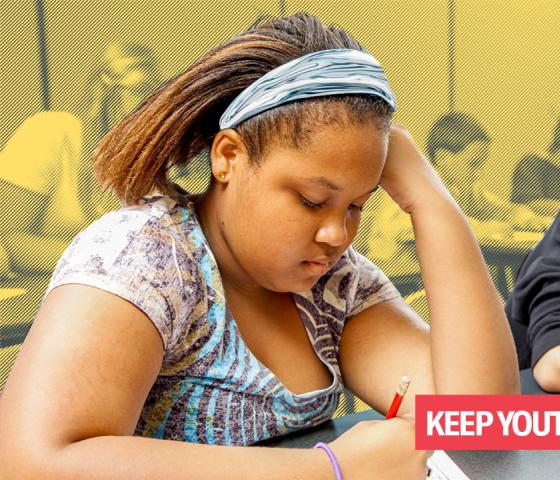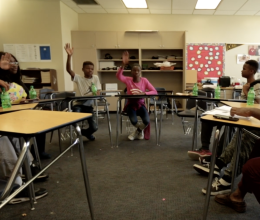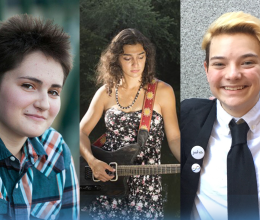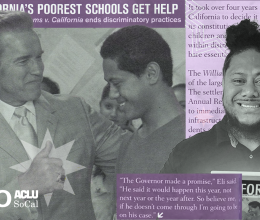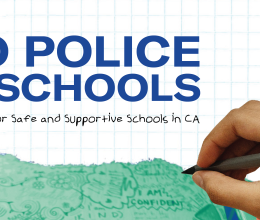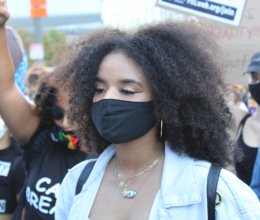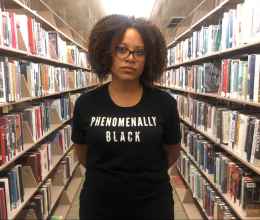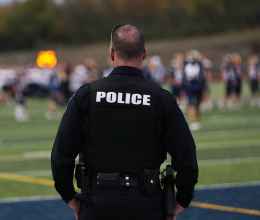By Andrew M., Plaintiff in SBX V. County of Riverside
I was in 8th grade when it happened. I’ll never forget the feeling of those cold, clanky pairs of metal constraints. I was being handcuffed in front of my friends and classmates.
As a lot of middle school students do, I was fooling around with my friends outside at lunch. We found an orange and started kicking it around like a soccer ball. It turns out I picked a bad day to fool around, and a bad person to tick off. A school resource officer – basically a cop – was stationed in the cafeteria, and the makeshift soccer ball made its way through his legs.
He apparently shouted something like “cut it out” to me, but I didn’t hear, so I responded - admittedly, probably with some attitude – “what?” He didn’t like that. Next thing I knew I was in handcuffs, being marched to the principal’s office.
I was really confused at the intensity of the situation. I had never been in real trouble before in my life. To make matters worse, my backpack was searched and they said they found some marijuana in my bag. The whole thing felt a little extreme when all I’d done was kick an orange.
My grandma was called to the school and a bunch of adults hovered over me with intense looks on their faces. I was nervous and confused, even more so when a stack of papers was shoved in front of me. I had no idea what the papers meant, but I was told that I’d be in more trouble if I didn’t sign them. I could get kicked out of school, and that’s what the school staff – you know, the ones who were supposed to be looking out for me – made me think. So I signed them.
It turns out those papers I signed put me in the YAT (Youth Accountability Team) program. My county set the program up to keep kids they viewed as “at-risk” in line. I was assigned a probation officer, even though I had no idea what that meant.
No one explained anything to me or my family. What was the point of this program? What were the instructions? How did I complete it? Who was making it mandatory?
But, like I said, I was in 8th grade. I just didn’t want to get in more trouble, so I signed the papers, like I was told to.
I was apparently supposed to be in touch with this officer every week to check in on things. I still didn’t really get what was going on, so I just went about my life the same way. He started showing up to my school, pulling me out of classes, and holding check-ins. He’d ask me about my grades, what I was up to. It felt weird to me that he was asking how my grades were as he was taking me out of class.
I don’t know much about the criminal justice system, so the word “probation” meant little to me other than what I heard in TV shows or on the news. I knew it meant something bad. Something that happened to people when they committed crimes.
So why was I on probation when I was never convicted of a crime? Why didn’t my school just deal with the situation instead of sending me under the supervision of someone I didn’t know, without any direction on how this should all play out?
My family was really happy when we started working with the ACLU. I didn’t know the inner workings of this system, but I knew something was wrong with it. I knew that kids shouldn’t have been treated the way I was. There was no way it was the most productive thing for me or for the school.
My attorneys told me that Riverside County is going to fundamentally change its system, so that kids who act like kids aren’t thrown into this confusing and extreme process like I was. I’m really happy about that. I can’t change how my situation was handled, but now I know that kids in the future won’t go through the same thing.
